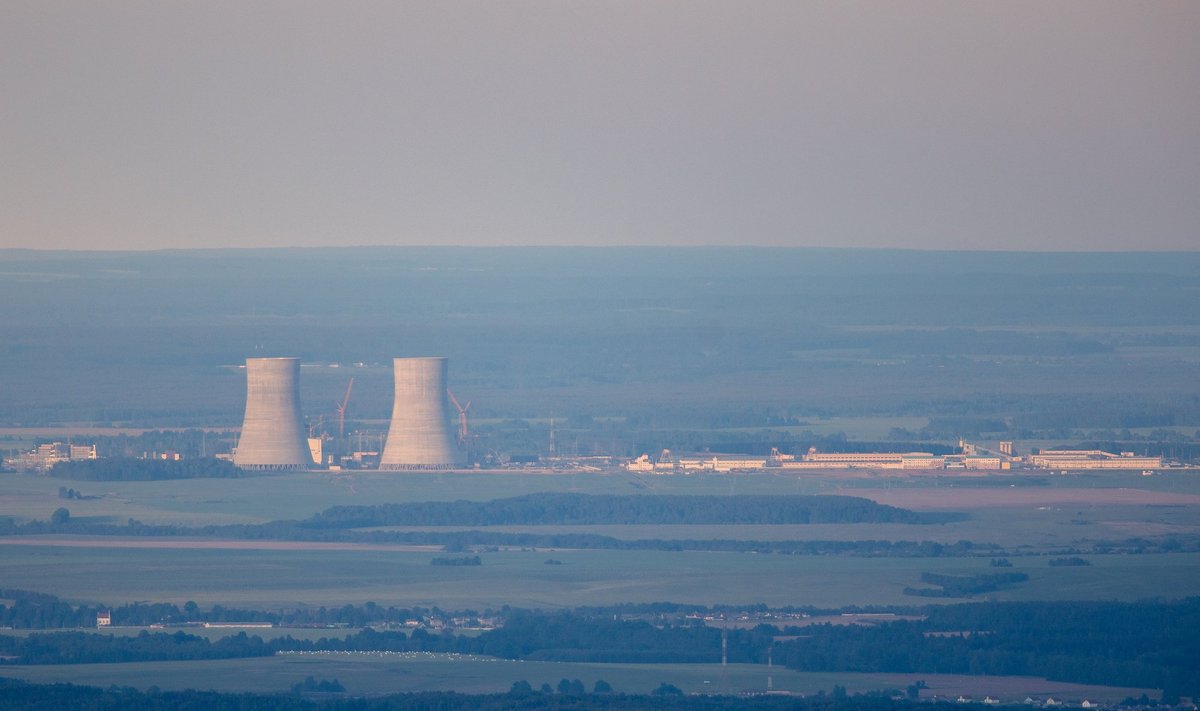"We have a law that bans purchases from the moment the Astravyets nuclear power plant is launched, if it is launched. Under the current regulatory regime, the Baltic countries may purchase electricity from Belarus only via Lithuania. That are no legal and regulatory instruments on the Estonian and Latvian borders to make that trade possible," Vaiciunas said on Ziniu Radijas on Tuesday.
However, the regime may be changed, the minister said.
"These things may change and I've no doubt that huge, desperate efforts will be made in search of possibilities for electricity to get access through Latvia and Estonia. Naturally, this will be done, but we'll see what decisions will be made," he said.
Latvia's Economy Ministry told BNS Lithuania earlier that all three Baltic states can technically import power from third countries, including Belarus and Russia, but Lithuania, Latvia and Estonia's trade agreements allow trading only via Lithuania.
"Currently, after cross-border electricity transmission links were built in the Baltic states, and the Baltic states joined the Nord Pool energy exchange market, the transmission system operators of the Baltic states in 2013 made an agreement to arrange their electricity trade flows with third countries through the borders of Lithuania-Belarus and Lithuania-Russia to ensure as effective functioning of the market as possible," the Latvian ministry said.
According to Vaiciunas, Belarus risks losing large sums of money after putting its first nuclear power plant on stream.
"With the Astravyets nuclear power plant offline, Belarus receives about 1 million euros in revenue from electricity trade daily. Naturally, once the Astravyets nuclear power plant has been launched, that trade flow will automatically stop and Belarus will lose the revenue," he said.
Vaiciunas did not rule out that Russia might put pressure on Vilnius regarding Astravyets electricity purchases as Lithuania will synchronize its grid with Europe and disconnect from the post-Soviet BRELL ring.
The minister added, however, that it would be irresponsible to speak about cutting off transmission lines with Belarus now.
"Infrastructure projects are underway to connect us with Europe to allow us to disconnect from Russia and Belarus. Disconnecting the lines (with Belarus) right away is not a responsible approach, because that would undermine our security and is not allowed under the same 'anti-Astravyets' law, which says clearly that we can't disconnect more lines than it is safe for us," he said.
According to the minister, Lithuania is taking additional measures to prepare for all possible blackmail scenarios.
It was reported on Monday that Belarus had pushed back the date of the launch of the Astravyets plant's first reactor until next fall. Minsk said earlier the first reactor would be switched on in May or June 2019.
Back in June 2017, the Seimas passed a law declaring the Astravyets plant a threat to national security, environment and public health. The government later approved an action plan for blocking electricity imports from the plant.
